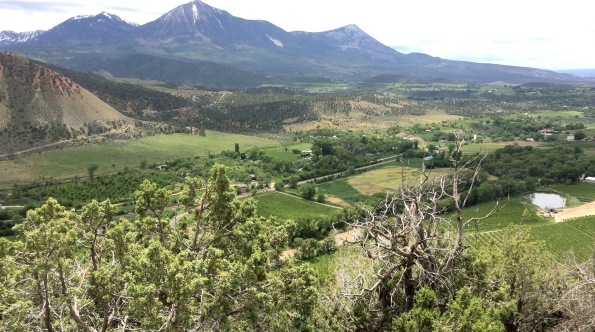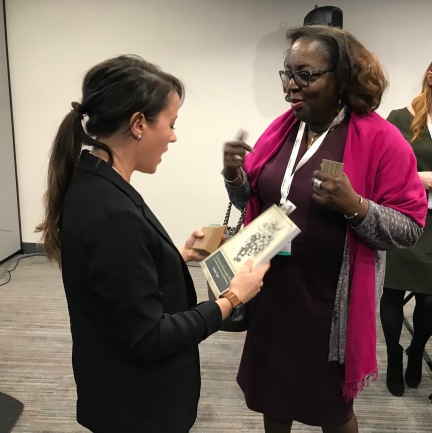Archive
Is it sustainable? Focusing on a living wine and a healthier world

The fields, orchards and vineyards of the North Fork Valley provide a living laboratory for a hot-bed of awareness in low-impact agriculture. Cutting-edge techniques combined with methods gleaned from ancient cultures may provide insights to protecting a fragile environment. Story and photos by Dave Buchanan.
Even while our society is awash in products ranging from clothing to fine dining labeled as natural or organic, confusion abounds for consumers and often producers.
Partly it’s because the rules or guidelines that define what those terms actually mean confound most parties.
It’s also partly because consumers interested in “being green” can’t always find products that fit their expectations.
According to a 2009 study by the Grocery Manufacturers Association and the research firm DeLoitte, 54 percent of the more than 6,400 shoppers polled showed a preference for environmentally friendly products but only 22 percent actually bought green.
Several reasons were outlined in the study, major among them “communication and product education,” said the report.
“We found … it’s not enough to just put green products on the shelf,” said Brian Lynch, GMA director of sales and sales promotion. “We have to better educate consumers and leverage in-store communication to make the sale.”
It’s not so different in the world of winemaking. Wines can carry such varied labels as “low sulfite,” “natural,” “organic” or even “made with organic grapes,” all of which mean something different, and often nothing, to the consumer.
Broadly speaking, you can lump all winemaking under one of two processes: conventional and sustainable.
Conventional is how the great majority of winemakers pursue their art. Pesticides, herbicides and fungicides in the vineyard; preservatives, color enhancers and custom yeasts to provide desired flavors may be added in the winery.
“Sustainable” winemaking is the umbrella under which you’ll find natural, organic and biodynamic methods of winemaking. The rules get progressively more restrictive as you moved from natural to biodynamic.
According to the website RawWine.com, natural wine is farmed organically or biodynamically, following the strict procedures delineated by Rudolf Steiner, with minimal intervention in the vineyard and the winery.
“The result is a living wine – wholesome and full of naturally occurring microbiology,” said the website.

Author and sustainability expert Sandra Taylor (right, in red) discusses her latest book, “The Business of Sustainable Wine” during VinExpo 2018 with Molly Clemens, a Ph.D student of Ecology at San Diego State University. Taylor’s book explains how sustainable agriculture may be our only cogent response to human-caused climate change.
Author Isabelle Legeron, MW, in her book “Natural Wine,” says a natural wine is one that can survive without a “technological crutch.”
“In its truest form,” writes Legeron, “it is wine that protects the microcosm of life in the bottle in its entirety, keeping it intact so that it remains stable and balanced.”
Sustainability includes using no additives or processing aids, including yeasts, in the fermentation process.
In her new book “The Business of Sustainable Wine,” Sandra Taylor says wine, unlike most other agricultural products, allows both producer and consumer to focus “on the wine grape’s place of origin and the details of the wine’s making.”
Taylor is a former executive for Starbucks Coffee, where she helped develop guidelines for Starbucks’ innovative work in sustainability for coffee, tea and cocoa.
I spoke with Taylor during Vinexpo 2018 in early March at the Javits Center in New York and during our conversation, she noted that despite a growing interest and awareness in a wine’s origin, the wine industry is lagging behind in sustainable agriculture, both in environmental terms and in meeting consumers’ growing demands.
In her book, she also draws a line between “sustainable” agriculture (including economic, social and environmental sustainability) and organic and biodynamic practices.
While Rachel Carson’s landmark 1962 book “Silent Spring” is universally heralded as ushering in the age of environmentalism, it wasn’t until the 1980s that Americans “began to seriously consider” where their food comes from or “what food production does to the planet, their bodies and their society,” Taylor writes. Her book is available through Grand Valley Books, 350 Main Street, in Grand Junction and other book sellers.
Other writers, including poet and environmentalist Wendell Berry, Frances Moore Lappé (“Diet for a Small Planet”) and ecologist Barry Commoner, further introduced Americans to the impacts of industrial farming and the benefits of sustainable farming.
Over the next few weeks, I’ll be talking to many winemakers who produce sustainable wines, including a group of more than 100 Italian winemakers at Vini Veri, the annual fair and exposition in Cerea, Italy, a small town in northern Italy a few kilometers south of Verona.
Those producers adhere to a dictum that avoids pigeonholing wineries as “bio” or “non-bio” but rather emphasizing, as the Vini Veri website states, “the best balance between human intervention and nature in the winemaking process.”
Next time, we’ll talk more about sustainability in winemaking and look at how it is practiced in Colorado winemaking. (Spoiler alert: Not so much.)
What’s in The Glass: #5 – 2018/Bonterra Organic Vineyards

Bonterra Organic Vineyards In Mendocino County, Cal., has produced organic and biodynamic wines since 1992. The winery’s three ranches are certified Biodynamic® by Demeter. Photo courtesy Bonterra Organic Vineyards.
There might still be some people who question why a winery would go through the effort to produced organic or biodynamic wines. Working without pesticides or synthetic fertilizers and chemicals requires more effort on the part of grapes growers and winemakers but the once you taste the purity and elegance of Bonterra Organic Vineyard’s lineup of wines, you’ll understand.
According to Bonterra’s founding winemaker Bob Blue, who got his jump into organic winemaking 31 years ago when he apprenticed under cult-status California winemakers Paul Dolan and Dennis Martin, “The key for making good wine is to have really healthy grapes.”
“We had the idea that if we farmed organically, we might make better wine,” Blue says in one of the winery’s promotional videos. “When we do organic, we get that balance in the vineyard.” The result, he says, is “the purest expression” of the grape.
It wasn’t easy at first, since even in the late ’80s few California winemakers understood the why or how of organic grape farming. Consumers, too, had to stretch their vision of what wine should be.
Today, “the consumers really appreciate what we do,” Blue muses in the video. “And we’ve achieved wines that are interesting and fun to drink.”
In 2017, Bonterra was recognized as American Winery of the Year at the annual Wine Star Awards ceremony hosted by Wine Enthusiast magazine.
Bonterra 2016 Pinot Noir – $18 SRP (media sample) Made with grapes sourced from home vineyards and from contract organic growers across Mendocino County, this firm-textured, fruit-forward wine offers initial aromas of strawberries, red currants and red raspberries and followed by flavors of more red fruits with a touch of oak, spice and vanilla.
Bonterra 2016 Viognier – $16 SRP (media sample). An initial flood of apricot and wine peach aromas are followed by flavors of more apricot, peach, green apple and orange blossoms. Fermented in both stainless (70%) and oak (30%) with another eight months in oak to add a bit of vanilla spice, this wine is sleek, firm and vibrant.
Bob Blue,,founding winemaker first wines in 1992
By then, Bonterra Organic Vineyards already had ben producing organic wines,
Today, Bonterra will be recognized as American Winery of the Year at the annual Wine Star Awards ceremony hosted by Wine Enthusiast magazine in Miami, Florida. It will be the first time the American Winery of the Year award is bestowed on a vintner dedicated to organic farming, and signals the blossoming acclaim and popularity of this once-niche segment of the wine landscape.
we’ve done so because we feel that organic grapes truly make the best wines,” said Jeff Cichocki, Bonterra Winemaker. “We were pioneers at the beginning of the organic movement, and we continue to evolve and lead with research into best practices for organic farming.
Why bio wines: more structural balance and require less manipulation during the vinification proces